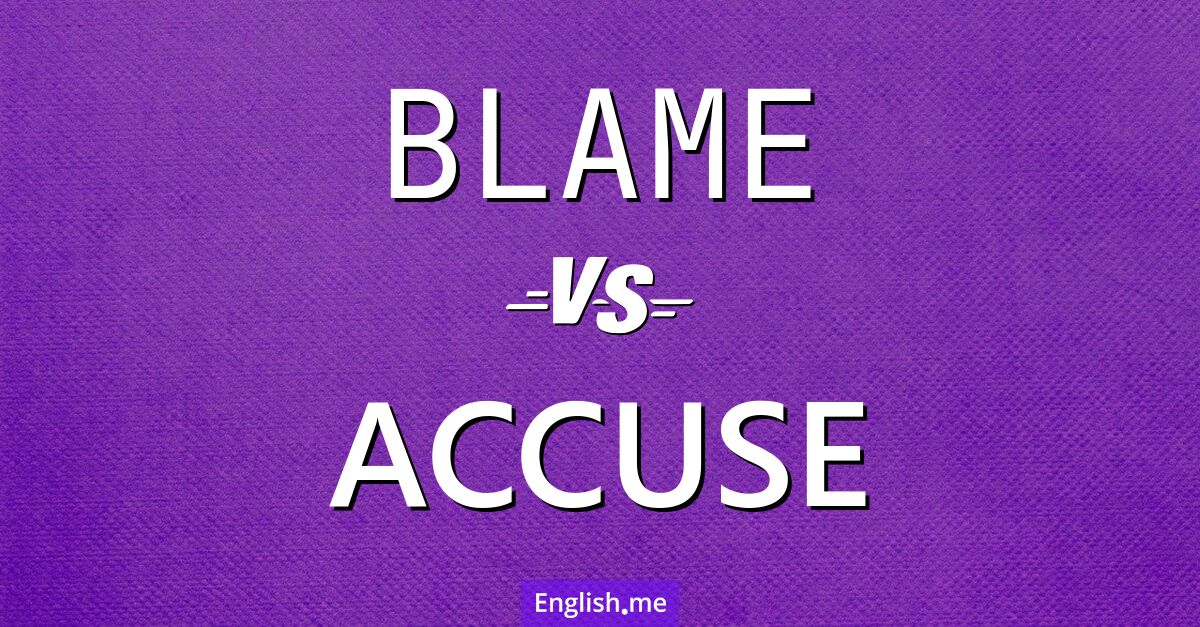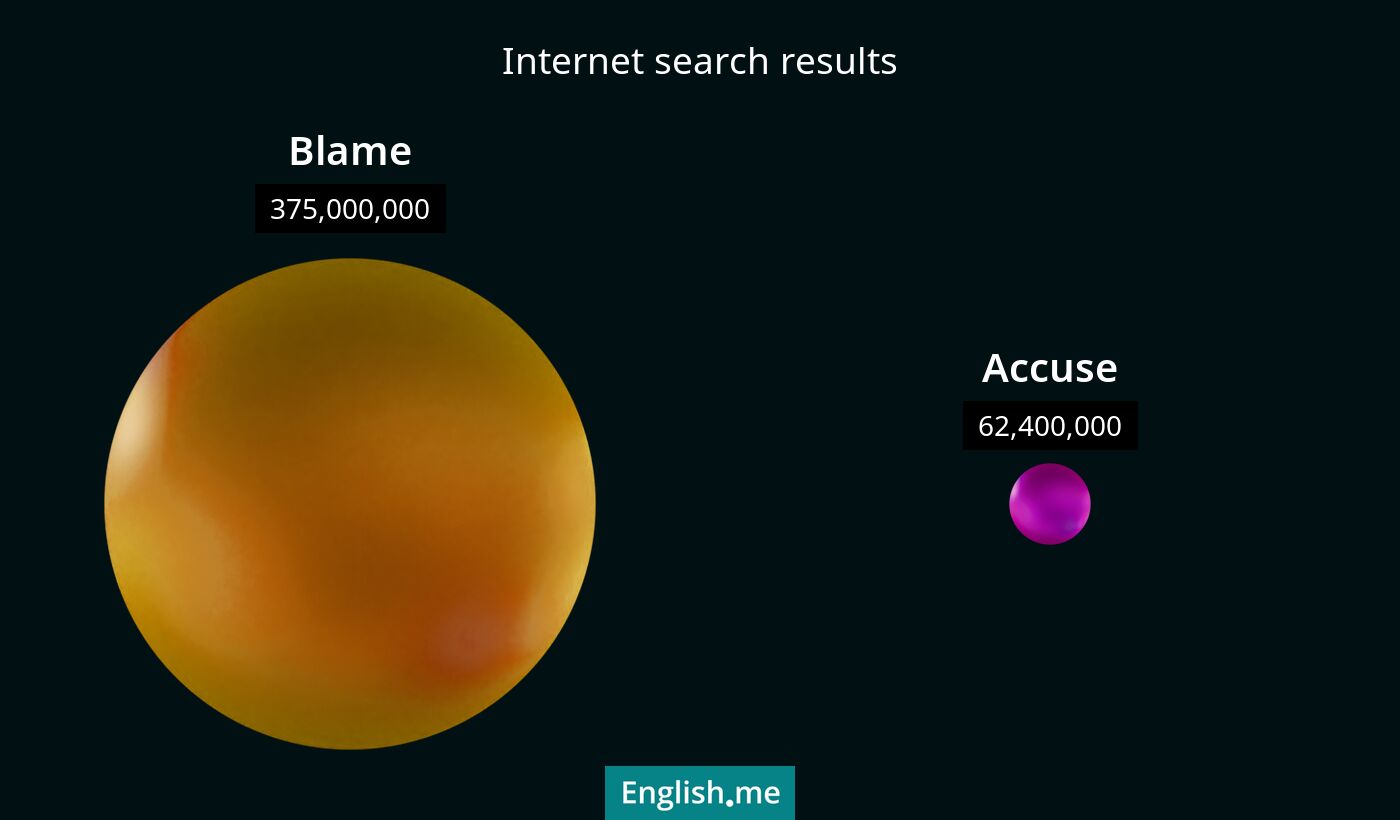"Blame" vs "accuse": understanding the difference
Reviewed and edited by  Anwar Kareem 12/01/2025, 04:13
Anwar Kareem 12/01/2025, 04:13
English.me team member

 What is similar?
What is similar?
Both "blame" and "accuse" involve attributing responsibility for a fault or wrongdoing to someone. They are used when holding someone accountable for a negative action or outcome.
 What is different?
What is different?
"Blame" is more general and can refer to attributing responsibility informally or without direct confrontation. "Accuse" is more specific and formal, often implying a direct claim or charge against someone, especially in legal or serious contexts.
 Which one is more common?
Which one is more common?

 Examples of usage
Examples of usage
Blame- She blamed the traffic for her lateness.
- They blamed the coach for the team's loss.
- He blames himself for not speaking up earlier.
- The prosecutor accused the defendant of fraud.
- She was accused of breaking the company's policy.
- They accused him of stealing the documents.

 English
English español
español française
française italiano
italiano deutsche
deutsche 日本語
日本語 polski
polski česky
česky svenska
svenska Türkçe
Türkçe Nederlands
Nederlands